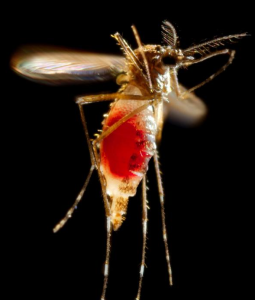The Centers for Disease Control and Prevention (CDC) has updated guidance for people who travel to or live in Miami-Dade County to lift the Zika cautionary (yellow) area designation. There have been no new cases of local Zika virus transmission identified and no cases under investigation in Miami-Dade County for more than 45 days. Lifting the yellow area designation means that there are no longer any travel recommendations related to Zika virus for Miami-Dade County, Florida.

Although we do not know the level of risk of Zika virus transmission after a yellow area designation is lifted, it is likely to be low. However, sporadic cases may still occur. Zika virus can be passed from a pregnant woman to her fetus during pregnancy. Infection can cause microcephaly and other severe fetal brain defects. For this reason, we recommend that people living in or traveling to Miami-Dade County continue to protect themselves from mosquito-borne illnesses, including Zika virus.
- Because we do not know the level of risk for local transmission of Zika virus in Miami-Dade County, women and men who live in or travel to this area should remain aware of any new reports of Zika virus transmission in their area and should consider following steps to prevent mosquito bites to reduce their risk for illnesses spread by mosquitoes, including Zika virus.
- Pregnant women and their partners who live in or travel to this area who want to reduce their risk of Zika virus infection should use condoms every time they have sex or they should not have sex during the pregnancy. Because Zika virus can persist for months in semen, there may still be a continuing risk for sexual transmission, whether or not the partner had symptoms of Zika virus infection.
- Women who are not pregnant and men who live in or traveled to this area before June 2, 2017, who want to reduce their risk of Zika virus infection should consider using condoms every time they have sex, or not having sex. Men should consider condom use for at least 6 months, and women should consider condom use for at least 8 weeks from the last day of their visit, if traveling, or from June 2, 2017, if they live in the area.
- For additional testing and pregnancy planning recommendations, visit https://www.cdc.gov/zika/intheus/florida-update.html
As of May 24, 2017, a total of 5,300 cases of Zika virus infection have been reported in the continental United States and Hawaii through CDC’s ArboNET. These cases include 224 locally transmitted mosquito-borne cases, 48 cases believed to be the result of sexual transmission, one case that was the result of a laboratory exposure, and one case that was the result of person-to-person transmission through an unknown route.
Related:
- Leishmaniasis outbreak reported in northeast Colombia town
- Cholera being investigated as cause of Philippines prison outbreak
- UTI test, EQUC, detects more bacteria than standard culture
- Phase 3 antibiotic, omadacycline, highly active against common bacterial pathogens in ABSSSI, RTI and UTI
- Cholera continues to spread in Yemen: WHO

